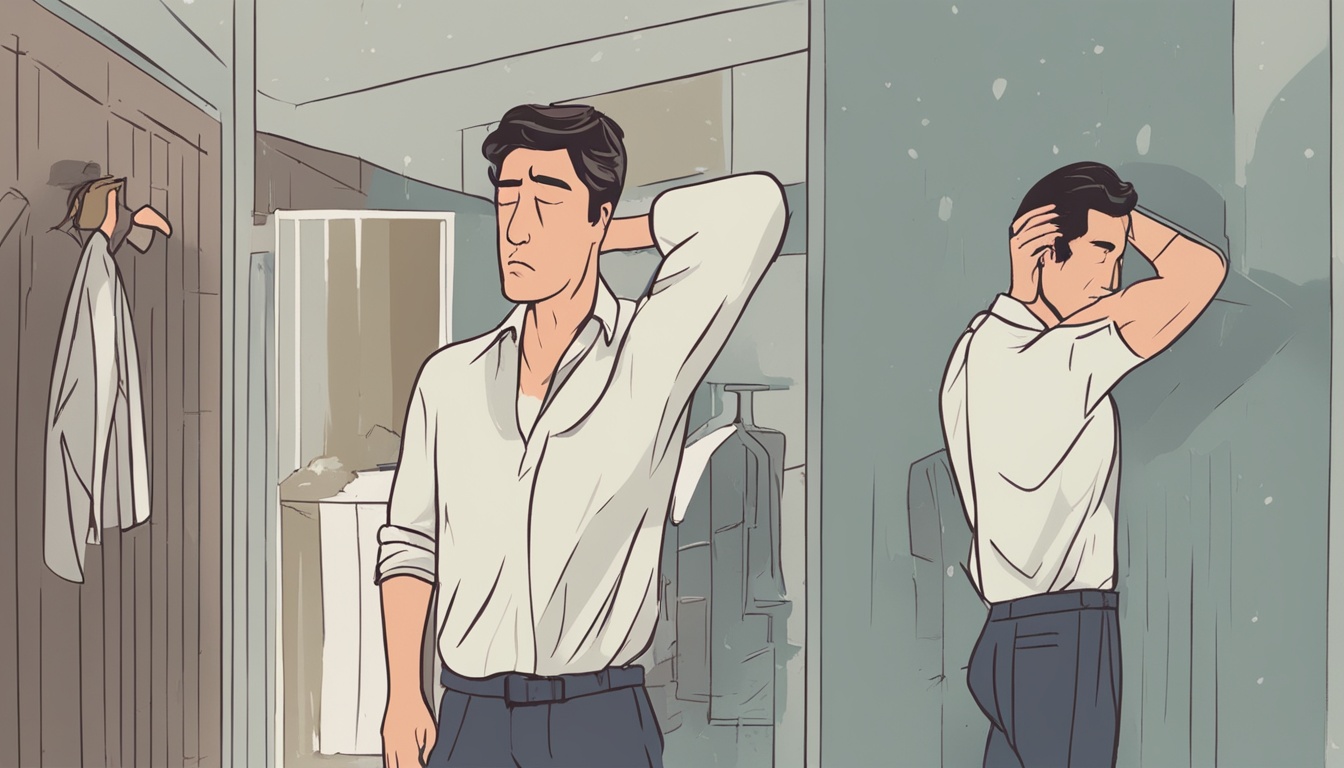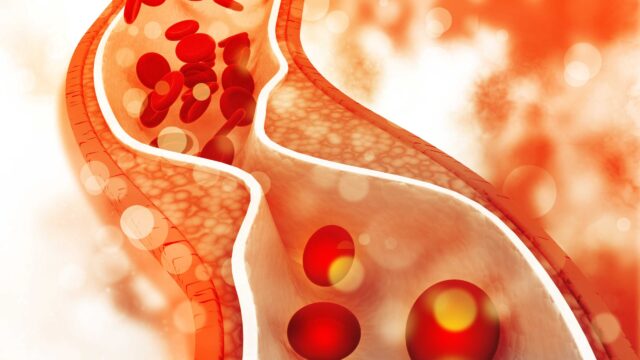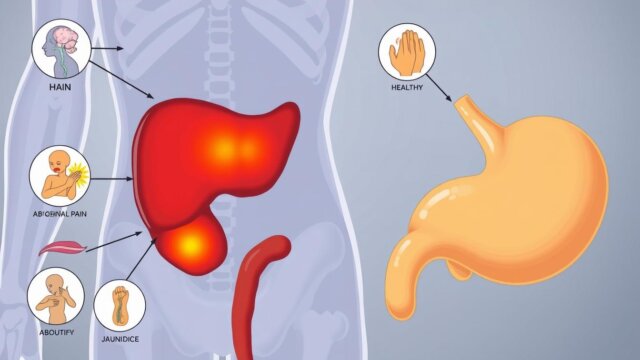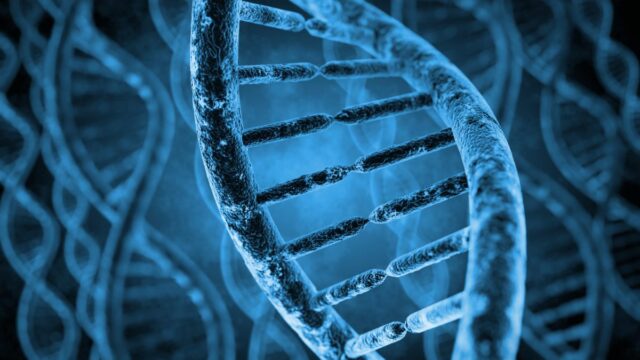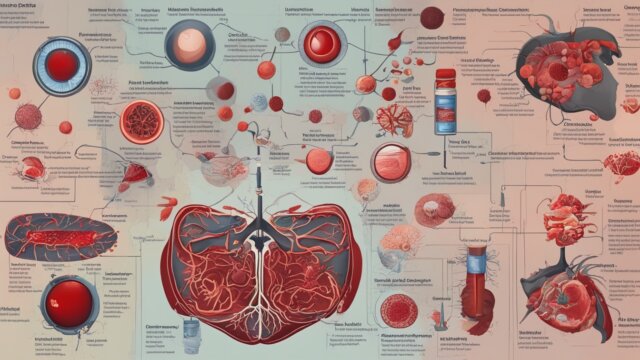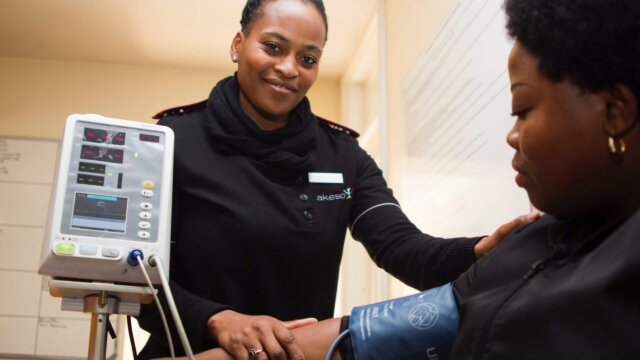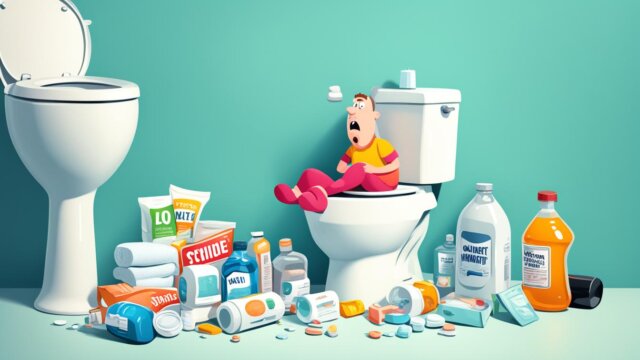FTC disclaimer: This post may contains affiliate links and we will be compensated if you click on a link and make a purchase.
Did you know that testosterone, the main male hormone, drops by about 1% each year after age 40? This slow change, called andropause or ‘male menopause’, brings physical and emotional changes. Hormonal imbalances happen when there’s too much or too little of a hormone. They can greatly affect your health and happiness.
Key Takeaways
- Testosterone is the main male hormone, and its levels drop with age, leading to ‘male menopause’.
- Hormonal imbalances can cause symptoms like weight changes, low sex drive, and skin issues.
- Factors like stress, diet, and medical conditions can add to hormonal imbalances in men.
- Hormonal imbalances can be found through blood tests, imaging, and urine analysis.
- Treatment options for hormonal imbalances in men include medications and lifestyle changes.
Hormones are chemical messengers made by the endocrine system. They control major body processes, like metabolism and mood. Imbalances in hormones like insulin and testosterone can affect both men and women. But men are more likely to have imbalances in testosterone.
Testosterone is the main male hormone. Low levels can cause andropause, or ‘male menopause’. Low cortisol levels can lead to adrenal fatigue. An overactive thyroid gland can cause hyperthyroidism. These imbalances can greatly affect your health and feelings.
Understanding Hormonal Imbalances in Men
What Are Hormones and Their Functions?
Hormones are key chemical messengers made by the endocrine system. They help control many body functions. These include metabolism, blood sugar, growth, blood pressure, and more. When the body makes too much or too little of a hormone, it can cause problems.
Keeping hormones in balance is key for men’s health. Knowing how hormones work and spotting imbalances can help men improve their health.
Hormone | Functions |
|---|---|
Testosterone |
|
Estrogen |
|
Thyroid Hormones |
|
Cortisol |
|
Understanding hormones and their roles helps men keep their health in check.
Types of Hormonal Imbalances in Men
As men get older, they may face hormonal imbalances that affect their health and happiness. These imbalances include andropause (low testosterone), adrenal fatigue (low cortisol), hypothyroidism (thyroid not working right), and hyperthyroidism (thyroid working too much). These issues involve important hormones like testosterone, cortisol, insulin, and thyroid hormones. They help control metabolism, sex drive, mood, and more.
Andropause, also called “male menopause,” is when testosterone levels drop naturally with age. This can cause problems like not being able to get an erection, losing muscle, and feeling less interested in sex. Adrenal fatigue happens when the adrenal glands work too hard, leading to low cortisol levels. This can make you feel tired, change your mood, and stress easily.
Men can also have thyroid problems, like hypothyroidism (thyroid not working enough) or hyperthyroidism (thyroid working too much). Hypothyroidism can make you gain weight, feel tired, and become sad. Hyperthyroidism can make you anxious, have a fast heartbeat, and lose weight without trying.
Knowing about these hormonal imbalances is key to finding the right treatment. Fixing these issues can boost men’s health, energy, and life quality.
Hormonal Imbalance | Symptoms | Causes |
|---|---|---|
Andropause (Low Testosterone) | Erectile dysfunction, loss of muscle mass, decreased libido | Natural decline in testosterone levels as men age |
Adrenal Fatigue (Low Cortisol) | Fatigue, mood changes, difficulty managing stress | Overworked adrenal glands |
Hypothyroidism (Underactive Thyroid) | Weight gain, fatigue, depression | Underactive thyroid gland |
Hyperthyroidism (Overactive Thyroid) | Anxiety, rapid heartbeat, unintentional weight loss | Overactive thyroid gland |
“Hormonal imbalances can have a significant impact on a person’s physical and mental well-being, which is why it’s important to understand the different types and their associated symptoms.”
Knowing about these hormonal issues helps men take care of their health and get the right medical help. Spotting the signs of these problems is the first step to getting back in balance and feeling good.
Symptoms of Hormonal Changes in Men
Physical and Emotional Signs
As men get older, they may notice changes in their bodies and feelings. These changes can include weight gain, a drop in sex drive, acne, feeling tired, losing muscle, trouble with erections, and bigger breasts. They might also feel moody, irritable, or sad.
Testosterone levels go up during puberty and can keep rising until a man is about 30. But, they start to drop by 1% each year after 30. By 70, some men might have half the testosterone they had at their peak.
Some men might have a condition called late-onset hypogonadism, which makes testosterone levels drop later in life. Being overweight or having type 2 diabetes can make this worse. Things like stress, depression, smoking, not exercising, eating poorly, drinking too much, and feeling bad about oneself can also cause these symptoms.
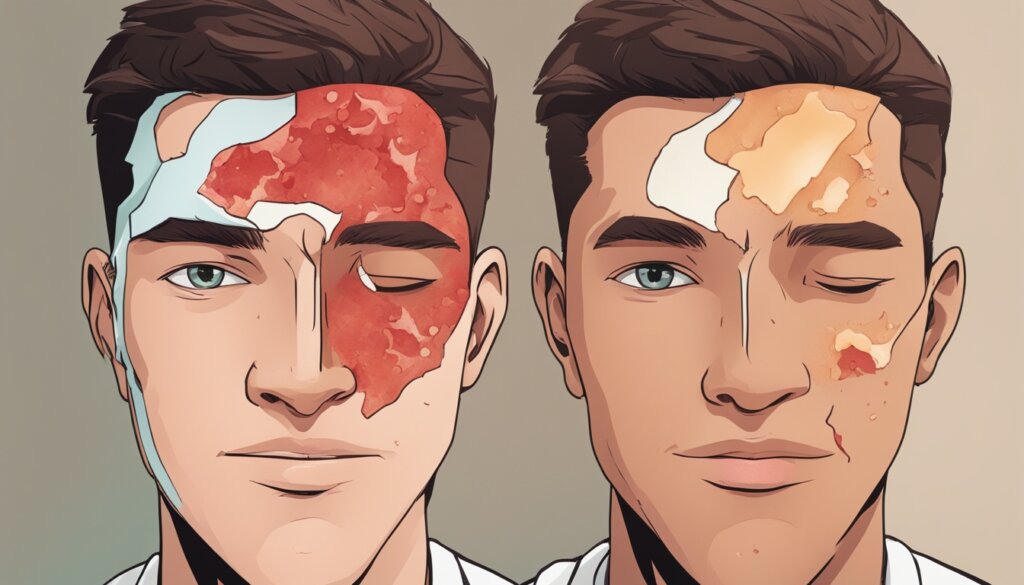
Not all men will feel the same effects of hormonal changes, and how bad they are can vary. Seeing a doctor regularly can help men find and fix any hormonal issues they might have.
Causes of Hormonal Imbalances in Men
Hormonal imbalances in men can come from many things. These include chronic stress, diabetes, and thyroid issues like hypothyroidism and hyperthyroidism. They also include poor diet and nutrition, being overweight or obese, and using certain medicines like birth control or steroids. Other causes are medical issues like tumors, injuries, or iodine deficiency.
Research shows that low testosterone can raise the risk of heart disease, metabolic syndrome, and type 2 diabetes. It can also lead to less strength, energy, and stamina. This can cause hypogonadism or “male menopause”.
Some medicines, like opiates and those for hypertension (high blood pressure), can cause erectile dysfunction in men. Signs of hormonal problems include gynecomastia, less interest in sex, erectile dysfunction, losing muscle mass, and mood changes.
As men get older, they make less hormone. By 40, most men have half the hormones they used to. By 80, it’s down to 5%. This drop in hormones, called andropause, can lead to health problems if not treated.
Other common hormonal issues in men are adrenal fatigue, hypothyroidism, and hyperthyroidism. Getting the right diagnosis and treatment, like Bio-Identical Hormone Replacement Therapy (BHRT), is key to managing these problems and staying healthy.
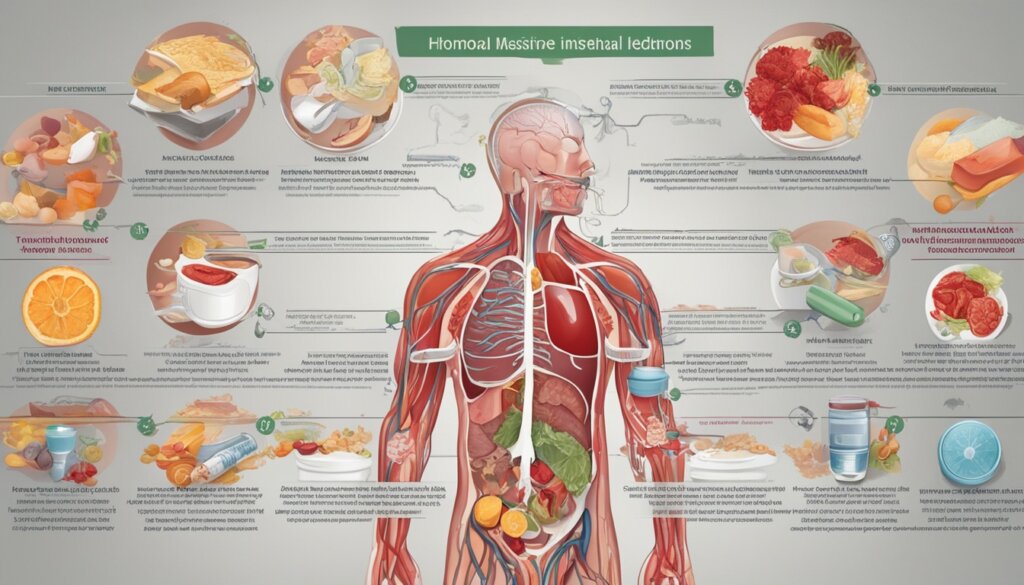
“Hormonal imbalances in men can have far-reaching consequences, but with the right treatment and lifestyle adjustments, these issues can be effectively managed.” – Dr. Jag Desai, M.D., double board certified in anesthesiology and interventional pain medicine.
Hormonal Changes in Men
Men go through many hormonal changes over their lives. These changes happen at different times, like during puberty and aging, or because of stress. Unlike women, men don’t have a clear “male menopause.” But, they do see a slow drop in testosterone as they age.
At puberty, a boy’s testosterone levels jump a lot as he grows up. This peak usually happens between ages 18-19. Then, testosterone starts to drop about 1% every year after 30. Growth hormone reaches its highest by age 25 and goes down by 2-5% every five years after that.
As men get older, their testosterone levels can drop a lot compared to when they were younger. They also see less insulin, aldosterone, and glucocorticoids, which can affect their health.
Some health issues, like prostate cancer or not enough testosterone, can mess with a man’s hormones. Signs of hormonal problems can be losing muscle, losing bone, trouble with sex, and other changes in body and feelings.
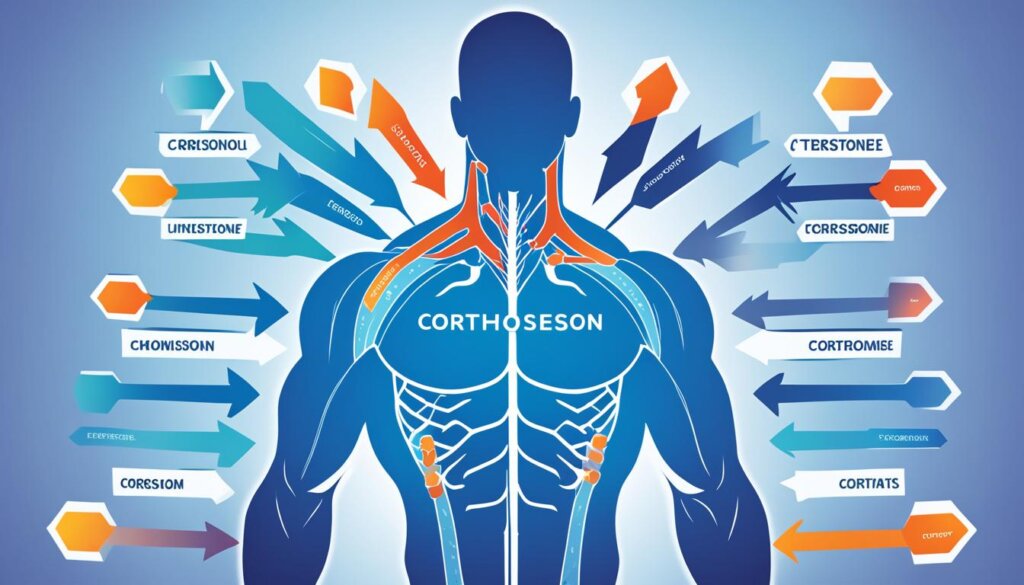
It’s important to know about the normal changes in hormones men go through and how health issues can affect them.
Diagnosis and Testing for Hormonal Imbalances
Blood Tests, Imaging, and Urine Analysis
To start, doctors use blood tests to check hormone levels. These tests show how your hormones are doing. They help find any imbalances. Sometimes, doctors use ultrasound or MRI to look at hormone-making organs like the thyroid.
Urine tests also play a big part in finding hormone levels. They’re great for checking hormones linked to the menstrual cycle. There are hormone testing kits for easy testing at home.
Hormonal issues can happen to anyone, from kids to seniors. Symptoms can be many, like feeling tired, mood changes, weight issues, and skin problems. It’s key to see a doctor for the right tests and treatment.
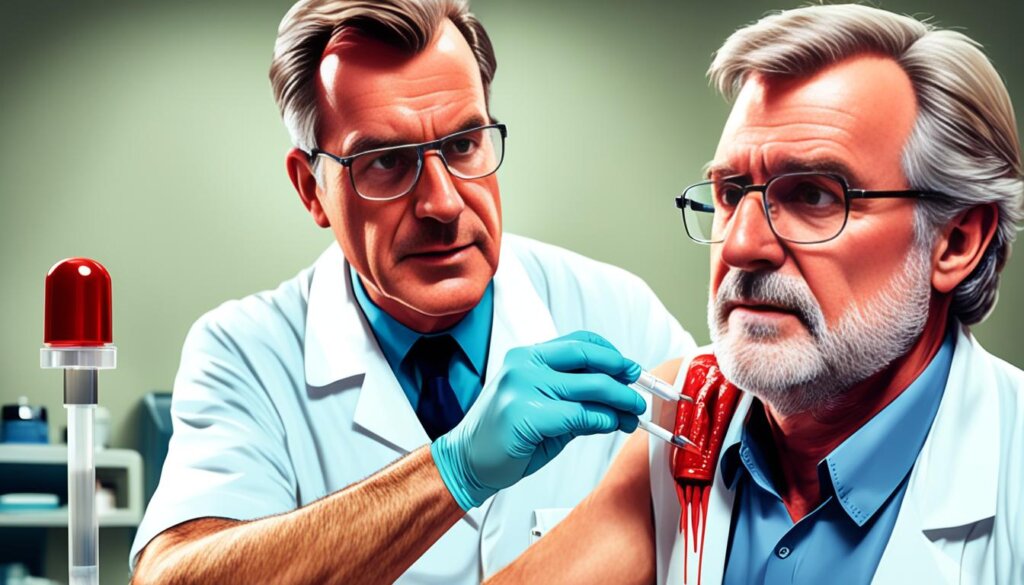
“Proper diagnosis and testing are essential for addressing hormonal imbalances effectively and improving overall health and well-being.”
Treatment Options for Hormonal Imbalances
If you’re feeling tired, your sex drive is low, you’re gaining weight, or you’re depressed, there are ways to help. Testosterone therapy can boost your energy, mood, and sex life if your testosterone is low. It might also help you gain muscle, feel less anxious, and keep your bones and heart healthy.
Other treatments like metformin for insulin issues or levothyroxine for thyroid problems might be suggested. Natural supplements and changing your lifestyle can also help balance your hormones. Try to reduce stress, eat foods full of fiber, healthy fats, and oily fish, and exercise regularly.
The right treatment for you will depend on what’s causing your hormonal imbalance and how bad your symptoms are. Talk to your doctor to learn about the risks and benefits of different treatments. They can help create a plan just for you.
“A 2015 study showed how bad sleep can mess with your hormones, making it key to get good sleep to keep hormones in check.”
- Blue light can mess up your sleep and mess with your hormones by tricking your body, which can lower melatonin levels.
- A 2017 study found stress affects your hormones too. Even a little stress can make you produce more adrenaline and cortisol, leading to weight gain, mood swings, and heart problems.
- Working out can help control your hunger hormones and lower the risk of diabetes and other health issues.
By finding and treating the cause of your hormonal imbalance, you can take steps to get your hormones back in balance. This can greatly improve your health and how you feel.
Lifestyle Modifications for Hormonal Balance
Making lifestyle changes can help men balance their hormones. Eating well, staying active, and reducing stress are key. These changes can help keep hormone levels in check naturally.
Diet and Nutrition
Eating a diet full of good protein, fats, and carbs is key for hormone health. Experts say eating 15–30 grams of protein at each meal helps balance hormones. Foods high in fiber and omega-3 fatty acids also help with hormone balance.
Exercise and Physical Activity
Exercise boosts hormones like testosterone and growth hormone. It also helps with insulin resistance. Staying at a healthy weight lowers diabetes and heart disease risks.
Stress Management
Practices like meditation and yoga lower cortisol levels. This can help with weight control and stress. Getting enough sleep is also vital for hormone balance, as poor sleep can mess with hormone levels.
Some supplements can also help with hormone balance. But, always talk to a doctor before starting them.
By changing your lifestyle, you can support your hormonal health and overall well-being.
The Role of Testosterone in Men’s Health
Testosterone is the main male sex hormone. It’s vital for many parts of men’s health. It helps with fertility, muscle strength, and bone health, among other things.
As men get older, their testosterone levels go down. This can make them feel less interested in sex, lose muscle, and have weaker bones. Keeping testosterone levels right is key for staying healthy. That’s why it’s important to check and treat any imbalances.
The hormone LH helps make testosterone. It comes from the pituitary gland. Then, Leydig cells in the testes turn cholesterol into testosterone. If testosterone levels get out of balance, it can cause health problems.
- It can make secondary sex traits less noticeable, make testicles small, and cause breast growth in men.
- It can cause too much masculinity, more hair, acne, and a bigger clitoris in some cases.
Doctors use testosterone to treat some health issues, like breast cancer in men, delayed puberty, and certain types of low testosterone. But, too much testosterone can cause problems like too much masculinity, more hair, acne, and a bigger clitoris. It’s not safe for pregnant women.
Keeping testosterone levels in check is key for men’s health. By knowing how this hormone works and spotting imbalances, men can take steps to stay healthy and feel better.
Conclusion
Hormonal changes and imbalances are common in men. They affect both physical and emotional health. Research shows that imbalances can cause many symptoms. These include weight changes, skin problems, low libido, and mood swings.
Understanding what causes these changes is key. Factors like stress, bad eating, and aging can lead to imbalances. Men can take steps to keep their hormones in balance and stay healthy.
Things like exercise and sex affect testosterone levels too. This shows the importance of a full approach to managing hormones.
Changing your lifestyle can help. Eating well, exercising, and managing stress are good steps. Getting medical help and treatments like hormone therapy can also help.
With the right steps, men can handle hormonal changes well. This supports their health and well-being as they get older.
FAQ
What are hormones and what functions do they have in the body?
Hormones are chemicals made by the endocrine system. They move through the bloodstream to control important body functions. These include metabolism, blood sugar, growth, blood pressure, and reproductive cycles.
They also help with sexual function, mood, and stress levels.
What are the main types of hormonal imbalances that can occur in men?
Men can face four main hormonal imbalances. These are andropause (low testosterone), adrenal fatigue (low cortisol), hypothyroidism (thyroid not working right), and hyperthyroidism (thyroid working too much).
What are the physical and emotional symptoms of hormonal imbalances in men?
Hormonal imbalances can cause physical issues like weight gain or loss, low sex drive, acne, and muscle loss. They can also cause erectile dysfunction and make breast tissue grow.
Emotionally, men may feel moody, irritable, and depressed.
What are the common causes of hormonal imbalances in men?
Hormonal imbalances can come from many things. These include too much stress, diabetes, thyroid problems, and a bad diet. Being overweight or obese can also cause it.
Using certain medicines like birth control or steroids can lead to it. So can medical conditions affecting the endocrine glands.
How do hormonal changes occur naturally in men throughout their lifetime?
Men go through hormonal changes as they grow up and as they get older. Stress can also affect hormone levels.
Conditions like prostate cancer, hypogonadism, and testicular injury can cause hormonal imbalances. This is because they affect the production of important male hormones like testosterone.
How are hormonal imbalances in men diagnosed and tested?
Doctors use blood tests to check hormone levels to diagnose hormonal imbalances. They might also use imaging tests like ultrasound or MRI to find problems like tumors or cysts.
Urine tests can also be used to check hormone levels.
What are the treatment options for hormonal imbalances in men?
Treatment can include testosterone replacement therapy and other hormone replacement medicines. Managing conditions like thyroid disorders or diabetes is also part of treatment.
Natural supplements and making lifestyle changes can also help. This includes eating right, exercising, and reducing stress.
How can lifestyle changes support hormonal balance in men?
Changing your lifestyle can help balance hormones. Eating foods rich in protein, healthy fats, and complex carbs is good.
Regular exercise and managing stress with meditation, yoga, and enough sleep can also help.
What is the importance of maintaining optimal testosterone levels in men?
Testosterone is a key hormone for men. It helps with fertility, muscle mass, strength, libido, bone health, and heart function.
Keeping testosterone levels right is key to good health.
